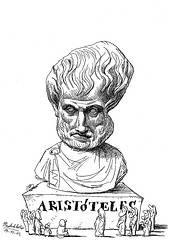This post deals with some technical stuff that might not be interesting for all readers, but I find it quite instructive in better understanding why it is that Thomas Torrance rejects the determinism that shapes frameworks of thought like that found, theologically, within Arminianism and Calvinism. And it should also help to illustrate an alternative route to  thinking about things in causally determinative ways; which implicates the ways that, in the West, in general, we have become most accustomed to think, even though someone like Einstein and his theory of relativity has demonstrated that reality, in fact does not work in mechanistically determinative ways. If this is so, then systems of thought like classical Calvinism and Arminianism are no longer viable in their classical theistic forms. Here is what Torrance writes about such things—just for a little context, he has been discussing the role of order, and contingency that we experience in creation; he persuasively argues that contingency (like creation presupposes) must presuppose a ‘rational’ ground of order beyond contingency, such that creation and contingency both find their orientation beyond themselves thus bequeathing to us an open-structured mode that only asks us to seek and think in accord with the intelligibility that stands beyond contingency—so contingency then allows for things, like knowledge, to be held in a dynamic relation relative to the personal ground of its reality V. a static relation that requires that we fill in the gaps between an unmoved mover and what we experience in creation (and as), thus maintaining some sort of necessary constancy between the Creator and the creation (I doubt the context I just provided helps very much; like I said, this is rather technical material). Here is Torrance:
thinking about things in causally determinative ways; which implicates the ways that, in the West, in general, we have become most accustomed to think, even though someone like Einstein and his theory of relativity has demonstrated that reality, in fact does not work in mechanistically determinative ways. If this is so, then systems of thought like classical Calvinism and Arminianism are no longer viable in their classical theistic forms. Here is what Torrance writes about such things—just for a little context, he has been discussing the role of order, and contingency that we experience in creation; he persuasively argues that contingency (like creation presupposes) must presuppose a ‘rational’ ground of order beyond contingency, such that creation and contingency both find their orientation beyond themselves thus bequeathing to us an open-structured mode that only asks us to seek and think in accord with the intelligibility that stands beyond contingency—so contingency then allows for things, like knowledge, to be held in a dynamic relation relative to the personal ground of its reality V. a static relation that requires that we fill in the gaps between an unmoved mover and what we experience in creation (and as), thus maintaining some sort of necessary constancy between the Creator and the creation (I doubt the context I just provided helps very much; like I said, this is rather technical material). Here is Torrance:
Now let us consider the other concept mentioned above, that of inertia. It is not difficult to trace its source either, in late Patristic and mediaveal theology — not to mention Neoplatonic and Arabian thought — particularly as the doctrine of the immutability and impassibility of God became tied up with the Aristotelian notion of the unmoved mover or a centre of absolute rest which was resurrected and powerfully integrated with Latin scholastic philosophy, science, and theology. In theology itself, it induced a deistic disjunction between God and the world, which scholastic thought tried to modify through bringing into play all four Aristotelian causes, the ‘final’ and ‘formal’ along with the ‘material’ and ‘efficient’ causes. The effect of this, however, was not to overcome the dualist modes of thought inherited from St. Augustine, the Magister Theologiae, but actually to harden the dualism by throwing it into a causal structure. This was particularly apparent in the conception of sacraments as “causing grace”, which was further aggravated (as in the doctrine of “real presence”) by the acceptance of Aristotle’s definition of place as “the immobile limit of the containing body”. In mediaeval science, on the other hand, the conception of a causal system ultimately grounded in and determined by a centre of absolute rest had the effect of obstructing attempts to develop emperical interpretations of nature for it denigrated contingentia as irrational.[1]
The moral is that we will either operate with something like an Aristotelian static view of metaphysics offers, or we will operate with a dynamic view of reality that is offered through a Trinitarian theology (and illustrated by an Einsteinian theory of relativity). One that is mediated through the contingencies of God become human in Jesus Christ.
[1] Thomas F. Torrance, The Christian Frame of Mind, 24-5.
*I originally wrote this for another blog of mine circa 07-16-2012.
